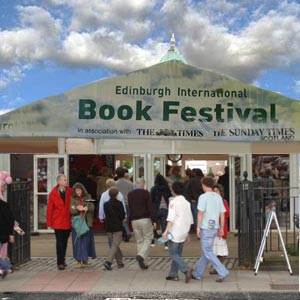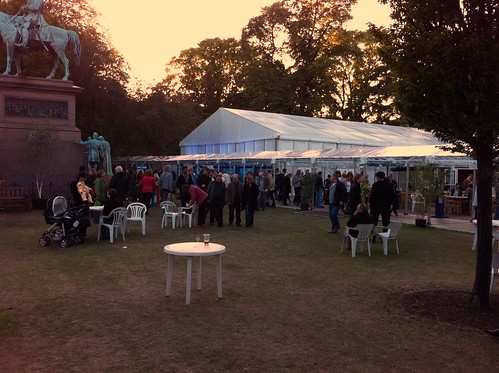 |
| Forgotten? |
During his talk on Saturday Neil Gaiman made a reference to a graphic novel of his I'd never heard of: The Books of Magic.
He made a joke about it. "People said JK Rowling stole off me. Of course she didn't. We were just stealing off the same people."
Or words to that effect.
The cover of the book is striking. What the heck is Harry Potter doing on a flying skateboard, and why is Hedwig grey?
The superficial overlap with Harry and Hogwarts is extraordinary. And I wondered how on earth I didn't already know that Gaiman, hardly an unknown writer, indeed, probably the best known fantasy writer in the UK right now, had written such a book, albeit as long ago as 1993.
Gaiman solved the mystery himself, to a degree. He explained that The Books of Magic were published by DC comics who sold the adaptation rights to Warners Bros, who in turn produced a brilliant first draft of the script. But it was just about this time that Harry Potter took off.
And remember, Harry Potter wasn't just another successful kids book: it was a phenomenon. Children, adults, dogs were queueing round blocks to get copies, to hear Rowling speak. Shops went mad about Harry Potter with supermarkets often giving hardbacks away for as little as £3.99, just so they could have a piece of the Harry action. And of course Warners won an extremely competitive bidding process to make the blockbusting movies.
Which have made a billion or so since.
Gaiman's graphic novel, in a parallel universe, might have had us all talking and dreaming about magic. As it was it was swamped by Rowling's juggernaut. Fair play her.
As for the film adaptation: Warners wanted to make the film, but it needed to be different to Harry Potter. So they messed about with the script so much that DC and Gaiman said, no thanks, please don't make this now. As for the book, it has been in limbo. But with Harry's adventures now finished, surely, surely it's time for a revival.









